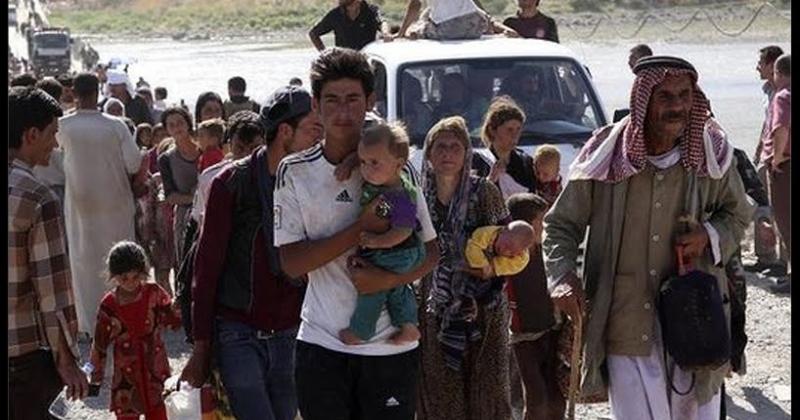This is the story of the mass exodus from the Plain of Nineveh.
Aleteia managed to to contact Father Paul, a priest from Karemlesh, an ancient Assyrian village of about 8,000 inhabitants southeast of Mosul. Christians once worshiped in churches as the one pictured, but not one believer is left there now: all were driven out by the arrival of ISIS Islamist terrorists. Father Paul is in Irbil, the Kurdish city which is hosting, in churches and other facilities, many thousands of Christian refugees from the plain of Nineveh. He is working side by side with Archbishop Bashar Warda of Irbil to provide assistance to refugees.
"We left Karemlesh before the Muslim extremists arrived,” Father Paul told Aleteia in a phone interview. “I took the parish records and the crucifix and ran. Like me, the rest of the Christians in the village left by car, some going to Irbil, some to other cities in the country where they had relatives who could accommodate them. When the Kurdish army retreated, we realized we would be left without protection. We didn’t know what would have happened had we stayed in our homes. Neither could we imagine the reaction of the Islamic militants. Just as in Karemlesh, so too in other villages of the Plain, people found themselves alone with no one to protect them, and so they fled.”
Father Paul says that, in one incident, elderly people who had remained at home were robbed by militants.
“No one dares go back to the villages because everyone fears a repeat of what happened in the city of Mosul,” the priest said. “There, the Christians who were driven from their homes asked to be allowed to return. But the Islamists laid down several conditions: pay the taxes, convert to their religion and fight with them for the cause of Islam. All absurd conditions.”
Father Paul did not confirm reports of the abduction of Christians that have been circulated in the press.
While on the one hand there are no certainties about returning home, on the other, Christian refugees in Irbil and the surrounding area at least have the certainty of receiving constant and continual assistance from the Chaldean Catholic Church.
“The churches are all full,” the priest said, “and several unfinished yet habitable buildings have been converted into dormitories. We are trying to ensure that there are meals, health services, and clean conditions for everyone. This is the minimum we need in order to survive in acceptable living conditions. We have heard reports of groups of refugees being hosted in the homes of friends and relatives that are close to collapsing, with 30-40 people living in them. We definitely need more public facilities to allow all refugees at least to settle into habitable places where they can receive help.”
In addition to volunteers and priests, Father Paul emphasizes that the Archbishop of Irbil is helping the refugees firsthand. “Archbishop Warda serves meals with us; he visits Christian families, and he coordinates assistance. The Church is doing everything possible, but the situation is difficult. We have to feed thousands of people. It’s hard. [We need] additional public housing spaces to sustain the rescue effort. The people need help.”
